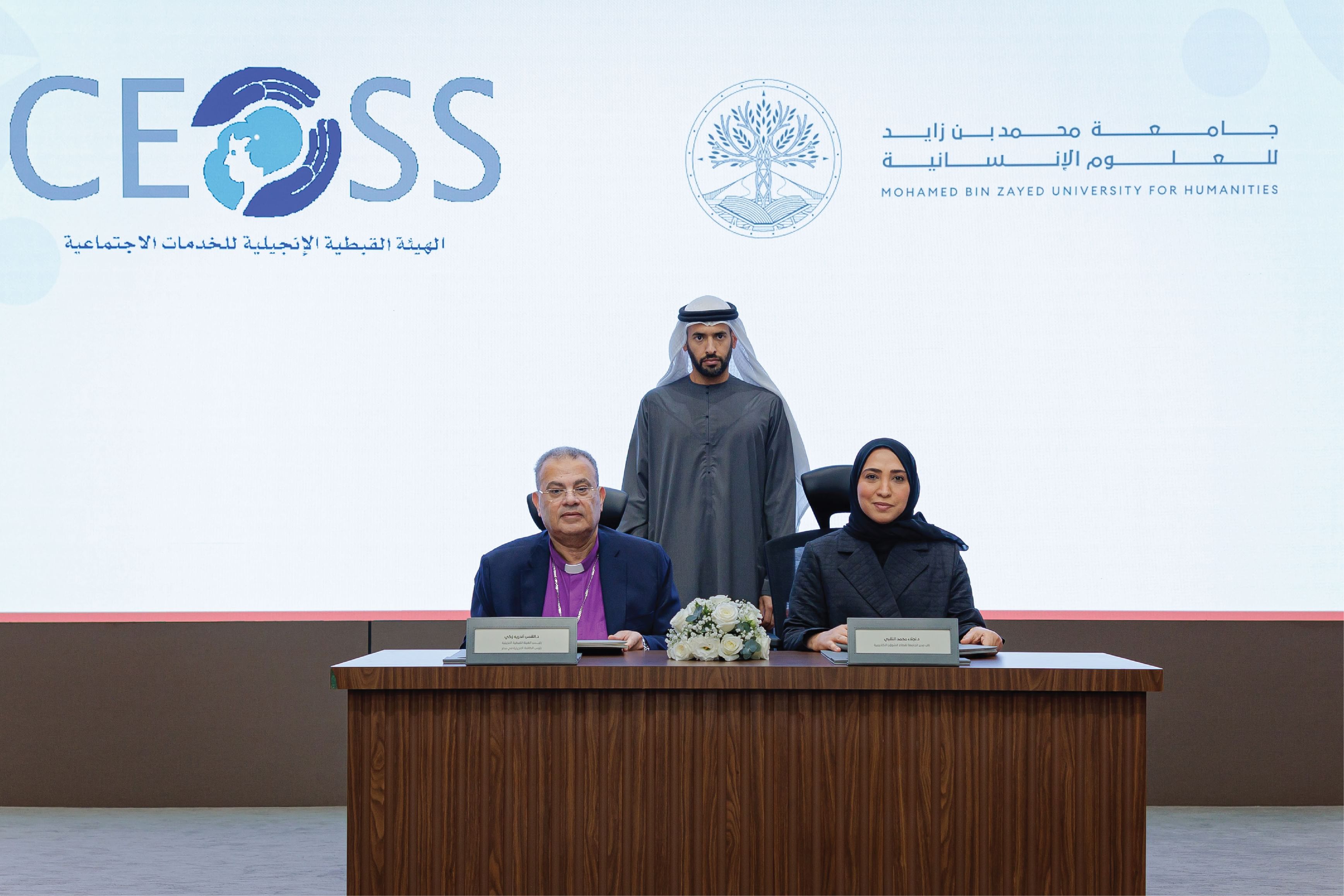
Mohamed Bin Zayed University for Humanities has organised the “Diversity and Coexistence – Roadmap for a Common Future” forum in partnership with the Coptic Evangelical Organisation.
The event brought together a distinguished group of intellectuals, academics, and experts from across the globe to discuss critical strategies for promoting cultural understanding, openness, and the development of cohesive, tolerant societies.
Held as part of the university’s ongoing commitment to shaping the cultural, intellectual, and humanitarian landscape of the UAE, the forum featured two key scientific sessions focused on the role of education, religious institutions, and societal collaboration in fostering diversity and coexistence.
The first session highlighted successful models of coexistence, showcasing inspiring examples of institutional and youth-led initiatives that have successfully promoted pluralism and mutual understanding. It emphasised how religious and academic institutions can play a pivotal role in launching and sustaining such initiatives.
The second session focused on the transformative power of education, particularly in developing curricula that foster dialogue, cultural awareness, and coexistence. Experts discussed the strategic role of education in building societies that embrace diversity and the importance of aligning teaching methods with contemporary societal needs. Key challenges, including the training of educators and the updating of curricula to reflect shifting cultural landscapes, were also explored.
Dr. Najla Al-Naqbi, Vice President for Academic Affairs at the university, highlighted the forum’s significance as part of the university’s commitment to advancing the values of tolerance and coexistence.
She emphasised that creating cohesive societies requires the active collaboration of academic, religious, and civil society institutions to promote mutual understanding and a culture of dialogue.
In a significant development, the forum concluded with the signing of a cooperation agreement between Mohamed Bin Zayed University for Humanities and the Coptic Evangelical Organisation. The agreement calls for the exchanging academic expertise, developing educational programmes, and launching joint initiatives in research and community service.
Additional components of the agreement include undertaking joint academic research, exchanging publications, and organising cultural and academic events in the future.
The agreement was formally signed by Dr. Najla Al-Naqbi on behalf of the university and Dr. Andrea Zaki, head of the Coptic Evangelical Organisation as well as the Evangelical Community of the Arab Republic of Egypt.

